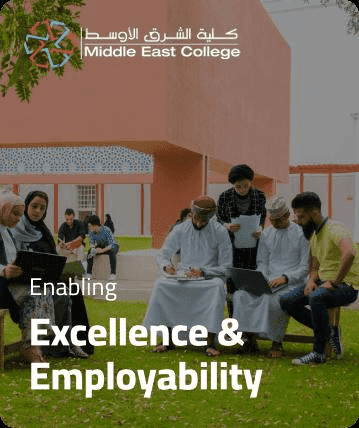
Academic Collaborations
Middle East College has come a long way from its inception in enhancing student experience. Our professional partnerships have helped us effectively to support the student community at the college. We look forward to emerging as a leader in Science and Technology education, so as to equip more and more youth with the professional competence required to meet the evergrowing demands of the industry and the society at large, nationally and internationally.

Coventry University
Established in 1843 as the Coventry College of Design, Coventry University has been educating students for over 175 years. Students can choose to study at one of the university’s global academic partners and earn a Coventry University degree award certificate. Its partners are supported by the university’s academic experts to develop collaborative programmes to the highest teaching standards and international best practice.
Coventry University Group provides a ground-breaking, high-quality learning experience for all its students. These students are part of a global network of 50,000 learners studying for Coventry University degrees in more than 30 different countries.
Coventry University is a forward-looking, modern institution with a proud tradition of teaching excellence and a focus on impactful research. The university is recognised internationally for its success in a number of fields, which is evidenced by the rankings and awards it has achieved.
Key Stats*
-
5 QS Stars Overall Rating
QS Stars University Ratings
-
Top 100 in World for ‘International Outlook’
The World University Rankings 2022
-
5 QS Stars for Internationalisation
QS Stars University Ratings
-
Queen’s Award for Enterprise
International Trade 2022
-
5 QS Stars for Innovation
QS Stars University Ratings
-
No.3 in the UK for students overseas.
Based on in-person delivery of TNE Programmes with an overseas institution, HESA data for 2020/21
Breda University of Applied Sciences
The Breda University of Applied Sciences, in the south of the Netherlands, is an international educational institution and hub known in the field of applied sciences. It has about 7,700 students from more than 60 countries from all around the world. The university is located in Breda City, a historical city having a population of about 180,000 people where 20,000 of them are young students…. Read more





